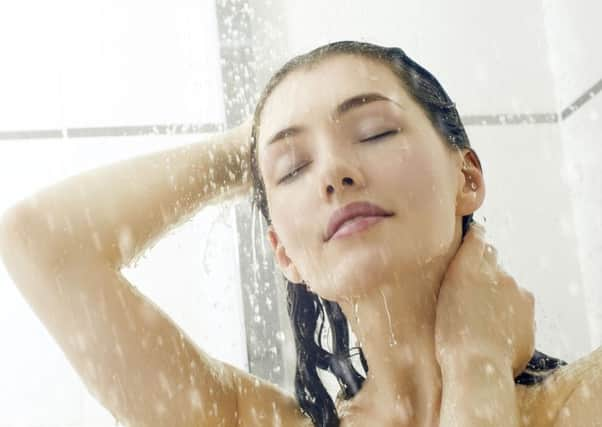Five tips for dealing with showers


Power showers are ideal for homes with plenty of hot water, as they take stored hot and cold water and mix it together to create the desired temperature. A built-in pump boosts the flow of water, creating a powerful spray, even if you have low water pressure (a tank-fed, gravity-based water system is required).
2. An electric shower only needs cold water because it heats the water as you shower and so will work even if the boiler isn’t working. These showers are great for homes with limited hot water and will work with any plumbing system. “Electric showers come in a range of kilowatt ratings - go for nine kilowatts or above, as you’ll enjoy a better flow rate,” says Emma Foster from Mira Showers.
Advertisement
Hide AdAdvertisement
Hide Ad3. Mixer showers need a supply of both hot and cold water, and blend them to the required temperature. Mixers are either surface mounted or have valves buried in the wall - the former are usually easier to install, as they fix to the tiled wall, but hidden valves often look nicer. Foster says: “Go for a mixer shower that offers thermostatic control to ensure the temperature stays constant, even when the toilet is flushed.”
4. Digital mixer showers control the flow and temperature of the water digitally, so you can have exactly the same showering experience every time by setting personal preferences. “You can set a maximum and minimum flow rate, as well as temperature,” says Foster. “A digital shower can even be programmed to switch off after a pre-set time, should you have teenagers who spend all day in the shower. Digital showers also have an electronic display that can show the temperature, flow rate and time.” These showers can often be controlled wirelessly from another location, so you can turn the shower on to warm up before you’re even out of bed.
5. If your shower produces little more than a dribble, an electric shower pump should make it more of a deluge, but pumps aren’t compatible with all boilers or the answer for all homes - a power shower is sometimes better. In some older properties, it may be necessary to replace the pipework, especially the pipe bringing in water from the main in the street, to improve the water flow rate. A better boiler and/or hot-water cylinder may also be the answer - ask a good heating engineer for advice.